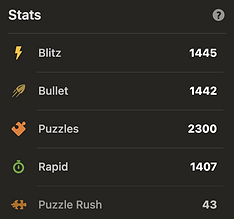
Hi, I'm Greg!
I am a computer scientist with a deep passion for algorithm design and low-level hacking. I have enjoyed working across a wide range of disciplines, from operating systems to drones and most recently blockchains.
Since 2018 I have been involved in the Ethereum ecosystem, doing R&D for open source smart contracts and algorithmic trading bots.
Learn more about my professional experience, hackathon projects and talks below!
EXPERIENCE
2021-Present
C, Go, Solidity, Python
2018-2021
Ethereum R&D / Lead
Solidity, TypeScript
2015-2018
Drone/Systems R&D
C++11
2014-2015
Software Engineer Co-op
C++11, Python, Shell
2011-2013
Software Engineer Co-op
Java, PHP, ActionScript
Algorithmic Trading / Ethereum Advisor
I develop trading algorithms for crypto markets, with strategies broadly ranging from arbitrage to market making and swing trading. I find these areas to be fascinating, challenging and awesomely competitive. I also feel they bring some value to the Ethereum ecosystem by making decentralized markets more efficient. I do not participate in sandwich attacks and many other MEV strategies that I view as unethical or harmful.
I also do security reviews, smart contract audits and general advising for select projects in the Ethereum space. I have worked with projects such as Azuki, for which I did a security review of their NFT auction.
0x Labs
0x is an open source exchange protocol built on Ethereum (and now L2s, like Polygon). I did smart contract R&D and led the protocol team during 2020-2021. I focused on trading logic, staking and AMMs (automated market makers), with additional exploration into areas like blockchain interoperability and scaling. Check out www.matcha.xyz to trade on 0x!
Hivemapper
Hivemapper is mapping the world in 3D using video captured by drones (and more recently dashcams). I researched collision avoidance in unmanned aerial vehicles (UAVs) and led development of a distributed OS that generated a global 3D map from drone video and sensor data. We mapped the SF Bay Area with DJI Phantoms, below is our rendering of the Stanford Football Stadium.

drone-generated point cloud with texture overlay; Stanford Football Stadium.
Moka5
Moka5 provides enterprises with scalable and secure workspaces through virtualization. I worked on a custom Linux distro doing low-level hacking on everything from the bootloader up to the window manager.
ClevrU
ClevrU is an education platform that delivers world-class courses to any mobile device, anywhere in the world. I worked on global data synchronization, frameworks for asynchronous RPC, and a real-time mpeg-ts to flv video transmuxer.
HACKATHONS
2022 ETH San Francisco
🥇 Hackathon Finalist/Winner
Judges:
Partners:
John Johnson
Peekaboo (Blind Auctions with VDFs)
Blind auctions on Ethereum are inefficient and costly. We developed a new auction mechanism that's efficient, scalable, and provides a seamless user experience.
Peekaboo is a blind NFT auction built on Ethereum/Optimism. Bids are sealed using asymmetric encryption, where the secret key is revealed by solving a verifiable-delay function (VDF). The secret key is published on-chain to close the auction. This allows anyone to reveal all bids after the auction is closed. Only one reveal is required on-chain, which is to declare the winning bid. Our auction has a lower amortized cost and more seamless user-experience than existing NFT auctions. This is made possible by the novel 2021 TIDE Encryption Scheme, which we adapted to the EVM by decrypting in a smart contract.

2020 ZRX HACKATHON
🥇 Best Technical Project
🥇 Most Liquid Project
Judges:
Jill Gunter (Slow Ventures)
Linda Xie (Scalar Capital)
Robert Leshner (CEO Compound)
Partners:
Peter Zeitz, Alex Towle, Chris Kalani, Jacob Evans
SCAM (Stable-Coin Automated Maker)
AMMs (automated market makers) are smart contracts that provision liquidity. The most well-known AMM on Ethereum is Uniswap. One downside of AMMs is that they are generally capital inefficient, meaning that a lot of funds must be locked in with very little being utilized.
Capital efficiency introduces a lot of complexity and edge cases. For example, if all liquidity is provisioned around market value and the price makes a big move then the contract can quickly run out of funds. This means the AMM is either offline or it is forced to rebalance at a loss to its liquidity providers.
However, this risk is reduced in tightly correlated markets such as stablecoin-to-stablecoin. Curve and UniswapV3 both handle this today (2022). Before they were around, we built SCAM as a hackathon project to address this use case.

2019 ZRX HACKATHON
🥇 Judges Choice
🥇 Best in Show
Judges:
Olaf Carlsen-Wee (Coinbase; Polychain Capital)
Joey Krug (Founder Augur; CIO Pantera Capital)
Partners:
Peter Zeitz, Ben Burns
Clippy (Naked Options on Ethereum)
Trading tokens is foundational to DeFi (decentralized finance). For this hackathon, we were curious how far we could push the boundaries of leverage trading in DeFi. To do this, we tokenized naked options (meaning they are not fully collateralized). The seller must add collateral as an option moves into the money (can be exercised), lest they get margin called.
This could be implemented for any trading pair, but a trusted oracle is required for a price feed on margin calls. We deployed using the MakerDAO ETH/USDT oracle.
2018 GAS GOLFING COMPETITION
Solidity Gas Golfing Competition
The goal of this competition was to combine efficient algorithms with highly optimized Solidity in order to minimize the cost of execution in the Ethereum EVM. The competition was composed of 6 algorithms we had to implement: A BrainF*ck Interpreter, A Hex-to-Binary Decoder, String Searching, List Sorting, and List Deduplication.
Check out the Hackathon Page to view my total gas cost (under the ENS name hyszeth.eth) and view the Source Code for my winning submission.
TALKS
Auctions with VDFs (ETH Sanfrancisco; 2022)
Intro to DeFi (Polkadot Conference; 2018)
(My talk starts at 1:33:16)
EDUCATION
My undergraduate career focused on Systems, with a breadth of courses in operating systems, security, networking, distributed systems, compilers, algorithms, cryptography, quantum mechanics, and AI.
My favorite academic achievement came in the real-time operating systems course (CS-452). Known as “the trains course,” it is regarded as one of Waterloo’s most difficult undergrad electives. I co-authored a microkernel with multi-tasking, synchronous inter-task communication, hardware-driven event handling, real-time path finding, autonomous navigation, and collision-avoidance. My codebase was 16,004 lines of C/ARM and I earned a grade of 91% (A+).
I was also one of few students selected to represent University of Waterloo in an Undergraduate Capstone Open Source Project. We worked with other students from across Canada on a compilers project. I implemented abstract data-types and researched code generation from an EBNF grammar.
2015
Bachelor of Computer Science
Major Average:
87.33% (3.9 / 4.0 GPA via whatsmygpa.ca)
Graduation Honors:
With Distinction
Computer Science, Honors, Cooperative
Scholarships:
University of Waterloo President's Scholarship
John & Karen Wetmore Entrance Scholarship
HOBBIES



I love to dribble🏀
I do gymnastics🤸
I'm into chess♟️